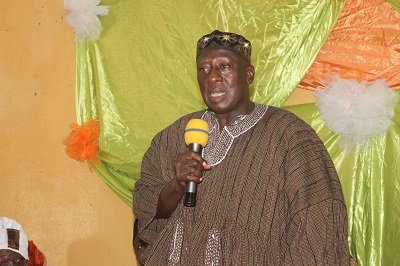The chiefs of the Wangara communities have held a national consultative meeting with the agenda of exploring ways of harnessing the potentials of Wangaras across the country in national development.
The dialogue was attended by Wangara chiefs from various regions and dignitaries including the past presidential candidate for the Convention Peoples Party (CPP), Dr Michael Abu Sakara Foster.
It was themed, ‘Peace, unity and development, the way forward’, and was aimed at discussing the historical antecedents and the current state of the relationship between Wangaras, Gonjas and Chokosis as one people.
The President of the National Council of Wangara Chiefs (WCZC) and the Wangara chief of Kintampo, Nana Yusif Fanyinama, expressed the need to build stronger ties between Wangaras, Gonjas and Chokosis to deepen their past and present relationships and shared values.
“Gonjas and Wangaras are the same people, Wangaras are in good terms with Gonjas, we go to their meetings and festivals and participate in every cultural occasion of the Gonjas, we are already together so all we have to do is to further that relationship,” he said.
Touching on the conflict between the Chokosis and Kokombas, Nana Fanyinama said they would be the mediators and consult the Overlord of Dagbon, Ya Na Aboukari Mahama II, to come to ensure a peaceful and permanent settlement.
On his part, Dr Sakara Foster, said the only way forward for unity and development among ‘our society was to diversify our socio-political and economic discourse’.
According to him, this can be achieved if peace prevailed for government to execute proper policies and programmes for the people.
Dr Sakara Foster added that it was imperative to change the mindset of the younger generation to be more patriotic and help in nation building.
Speaking in an interview, the vice president of the National Council of Wangara Chiefs, Chief Imoro Baba Issah, said it was important for Ghanaians to disregard partisan politics but as a channel for development.
He also noted that after the deliberations the chiefs would develop mechanisms to ensure effective solutions in tackling societal needs.
BY David Takyi

